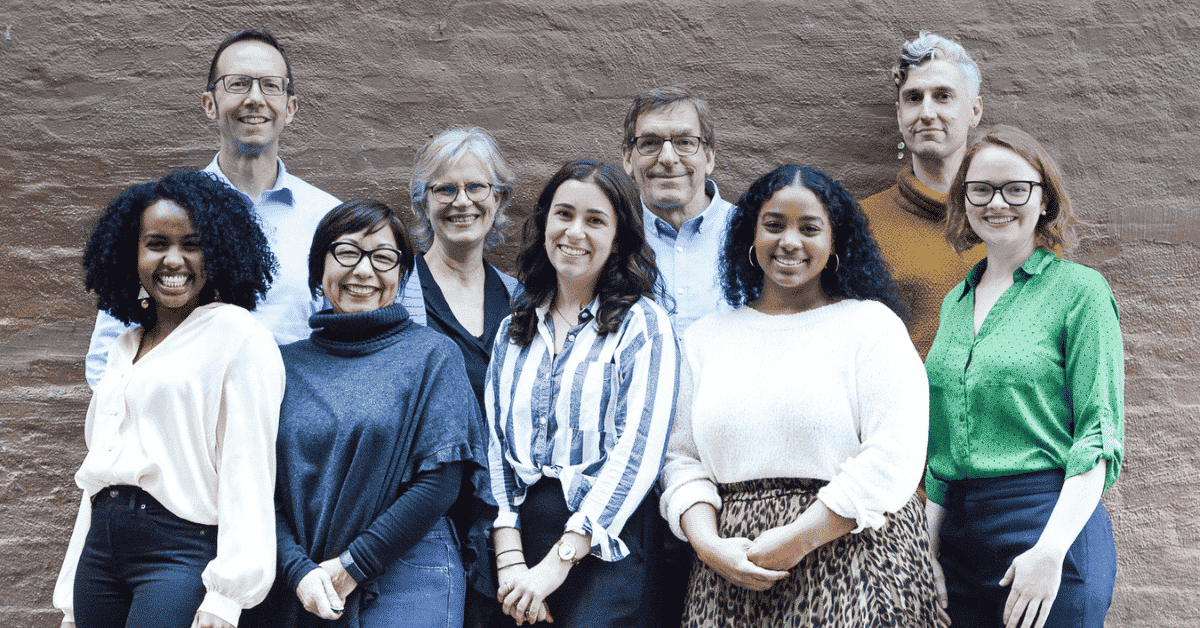Listening to Workers

Family Values @ Work’s state partners have won major policy advances for working families, including paid family and medical leave, paid sick and safe days, and child care policies that have the potential to benefit more than 55 million working people and their loved ones. A big lesson from nearly 20 years of organizing on these issues: Passing the policy is just the first step. We have to ensure that people can use it.
We know that communities of workers historically targeted for oppression—BIPOC, women, low-paid workers, and immigrants—struggle to get access to paid leave and other public caregiving supports, even when the law guarantees them.
But how do we make sure that those who most need these policies can access them? FV@W’s partner in Washington state, Economic Opportunity Institute (EOI), set out to discover BIPOC workers’ experiences with the first year of that state’s paid family and medical leave program. EOI collaborated with grassroots organizations to hold listening sessions with workers of color to find out what barriers they have encountered to using paid leave and what needs to change to make access to the program more equitable.
Gabriela Quintana, EOI’s Advocacy Director, helped coordinate the listening sessions. She said the program has been one of the biggest safety nets for working families. Before the program started, workers would often postpone building families or put off a much-needed surgery. Since the inception of the program, over 100,000 workers have applied for and received benefits. The general feeling is that paid family and medical leave is, as one listening session participant put it, a “godsend”.
Gabriela says that “people are so relieved to have it and know they can count on it. But for BIPOC, accessing the program has come with challenges that are deeply rooted in institutional racism.” Barriers based on gender, race, income level, employer attitude, and language access continue to keep workers who need paid leave from using it. “We have a lot of work to do,” she says.
EOI produced a report on what they heard in the sessions. Gabriela says some of the most impactful stories were about “institutional gender-specific and race-specific actions against people.” Women of color reported being subjected to both racism and sexism as they tried to use their paid leave rights, often in the form of disbelief and disrespect from supervisors and coworkers. “One woman said she had needed surgery and basically her boss told her that she didn’t need that much time off. She went back way earlier than her doctor recommended.” Another said that her colleagues kept dismissing parental leave after the birth of her child as “vacation.” Pressure from unsupportive bosses can keep BIPOC workers from speaking up for themselves and what they and their families need. “People are just like, ‘We can’t say anything’,” Gabriela observes.
The FV@W network is developing strategies to push for fair implementation and enforcement of paid leave laws across the country. Our state partners share what they learn with other network members and with allied movements to accelerate our collective understanding of what it takes to make policies accessible and equitable for all working families. And we’re using that knowledge and that momentum in the federal policy design process, to ensure the nation’s first comprehensive paid leave program will include key provisions like job protection, inclusive family definition, and a level of wage replacement that allows lower-wage workers to afford to take time to care.
EOI’s listening sessions are a great example of another lesson our movement for paid leave has learned: Working people are the real policy experts. They know what it will take to make it possible for every person to have time to heal, care for loved ones, and build economic security for their families. Now we just need our elected leaders to listen, too.